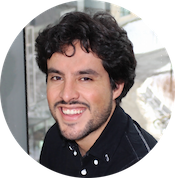CSE Seminar
Mobile Health Approaches to Precision Medicine
This event is free and open to the publicAdd to Google Calendar

Passcode: 140995
President’s Postdoctoral Fellowship Program Candidate
In this talk, I will present my work on mobile health approaches to achieve precision medicine goals. I will first describe some of my work towards precision medicine on sensing people’s behavior and mood which could be used to infer health state or trigger interventions. Then, I will present the results of a real-world deployment of a personalized sleep intervention. This intervention uses artificial intelligence (AI) to optimize each patient’s time and content of treatment, informed by sensors and human-AI interaction. This AI-personalized intervention approach resulted in better outcomes than a standard sleep intervention. We also found evidence that contextual factors, among others, have a strong influence on people’s treatment adherence.
I will close this talk by describing promising future research on the personalization of other aspects of mobile health intervention and applications of this work in domains like a physical activity intervention for cancer survivors.
Bio: Julian Ramos is a Ph.D. candidate at Carnegie Mellon University – School of Computer Science, where he is advised by Anind Dey and Mayank Goel. Julian’s research is in mobile health at the intersection of sensing, artificial intelligence and human-AI interaction. Julian’s goal is to create robust technology for real-world deployments that address pressing societal issues in public and personal health. He was a 2017 Digital Health Fellow from the CMU Center for Machine Learning and health, and the recipient of the 2019 Microsoft Dissertation Grant. His research has resulted in over 20 articles published at top venues, including one Ubicomp best paper award and one honorable mention award at PERCOM. Julian holds an MSc. in Human-computer Interaction from CMU and a B.Eng in Mechatronics from Universidad Militar Nueva Granada.
 MENU
MENU 
